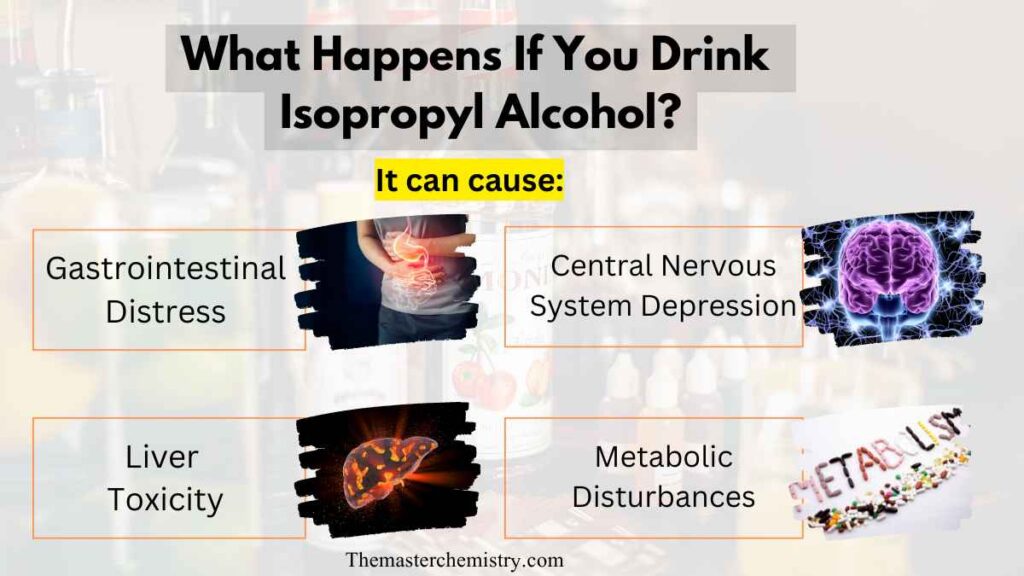Written By Adeel Abbas
If someone drinks isopropyl alcohol, commonly known as rubbing alcohol, it can have serious health consequences and should be treated as a medical emergency. Isopropyl alcohol is not intended for consumption and can be highly toxic when ingested.

What happens when rubbing alcohol enters the body?
Table of Contents
When isopropyl alcohol enters the body, it is rapidly absorbed into the bloodstream and distributed throughout various organs. Here are some potential effects:
1: Gastrointestinal distress
Drinking isopropyl alcohol can cause irritation and damage to the digestive tract, leading to symptoms such as nausea, vomiting, abdominal pain, and diarrhea. In severe cases, it may cause bleeding or ulceration of the gastrointestinal lining.
2: Central Nervous System (CNS) depression
Isopropyl alcohol acts as a depressant on the central nervous system. Ingesting it can lead to dizziness, confusion, impaired coordination, slurred speech, and even loss of consciousness. High doses can cause respiratory depression, which is life-threatening.
3: Liver toxicity
Isopropyl alcohol is metabolized in the liver, and excessive consumption can result in liver damage. Prolonged or repeated exposure may lead to fatty liver disease, hepatitis, or even liver failure.
4: Metabolic disturbances
Isopropyl alcohol can disrupt the body’s normal metabolic processes, including glucose regulation. This can result in low blood sugar (hypoglycemia) and related symptoms like weakness, fatigue, confusion, and seizures.
It is essential to emphasize that drinking isopropyl alcohol is extremely dangerous and can be fatal. If someone accidentally ingests it or displays any symptoms after ingestion, immediate medical attention should be sought. In the case of an emergency, contact local emergency services or a poison control center for guidance.
To prevent accidental ingestion, it is crucial to store isopropyl alcohol securely and out of reach of children or individuals who may mistake it for a beverage. Educating students about the risks and potential consequences of consuming isopropyl alcohol is an important step in promoting their safety and well-being.